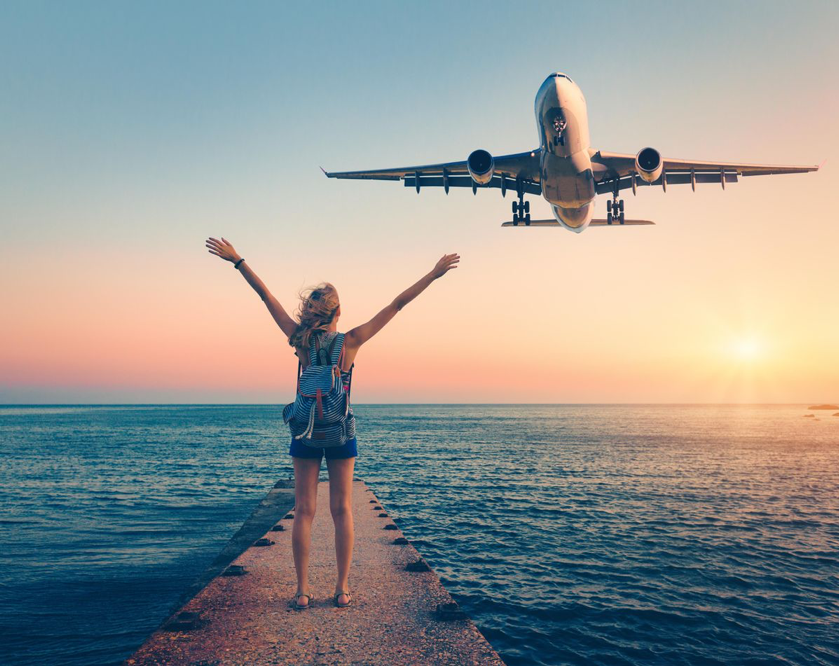
Vaccines are rolling out, summer is approaching, and while the CDC continues to advise against travel (even for the vaccinated, who can still spread Covid-19), those who have received their shots are starting to make plans.
Already TSA numbers are hitting levels not seen in a year (over a million passengers a day), Universal Orlando has been at capacity multiple days in a row, and planes that used to fly half empty are packed. According to Town & Country magazine, “all those things you’ve hated about airplane travel” are now “gone,” and “the next 12 to 18 months might just be the new golden age of flying.”
While change fees (except for the cheapest fares) and sharing your airline cabin with emotional support animals may be no more, I’m not sure things are exactly golden yet. Here’s my take on travel in the upcoming months.
When it comes to flying, expect the type of problems that result from understaffing and less-than-experienced or rusty staff. It took airlines several months to adjust to reduced demand for their services—parking and storing aircraft, reworking flight schedules, laying off workers—and it likely will take them some time to get back up to speed.
Already people are experiencing extremely long hold times when calling airlines. (As a result, you may want to use chat functions on airline websites or contact airlines via social media whenever possible instead. Social media is good because it doesn’t have to be in real time, but chat works well, too.)
Flights on popular dates are quickly filling, and prices are creeping up. Without business travelers (who tend to fly more and aren’t as price-sensitive), airlines may not be able to raise fare prices significantly; the number of low-cost carriers will also help keep prices down. While airlines have added service to leisure destinations (think rural and leisure-oriented), look for cheapest fares on routes to the bigger cities. Oh, and while cabin service (in-air food and drink) may return, don’t expect masking requirements to go away soon.
Car rentals may be another pain point. Many smaller car rental shops shut their doors during the pandemic and the larger companies sold cars to stay afloat. The resulting auto shortage means higher prices; what it used to cost to rent a car for a week may get you only two days at popular destinations on prime dates. If you need to rent a car, book it early and register your reservation with AutoSlash to take advantage of any price drops.
Accommodations may be scarce and pricey, too. With so many international destinations still closed to Americans, most travel will be domestic. Expect competition for Airbnbs and hotels, especially in outdoor-centric locations. As an example, here are the current top-ten Airbnb destinations for spring and summer travel:
Cape San Blas, Florida
Lake Powell, Arizona
Round Top, Texas
Cape May, New Jersey
Southern Maine
Kitty Hawk, North Carolina
Lake of the Ozarks, Missouri
Whitefish, Montana
Mammoth Cave, Kentucky
Orderville, Utah
If there’s a place you think you’d like to visit, book your accommodations as soon as possible (and be sure to note the cancellation policy and fees).
Yes, the age of travel is coming back. If it’s not yet golden, after this past year, even brass would look pretty good.
P.S. Stumped for road trip ideas? This may inspire you to make a plan without purpose. (Trust me; it can be very fun.)
